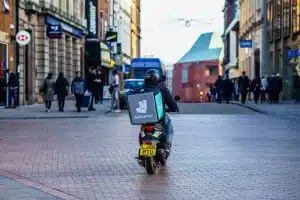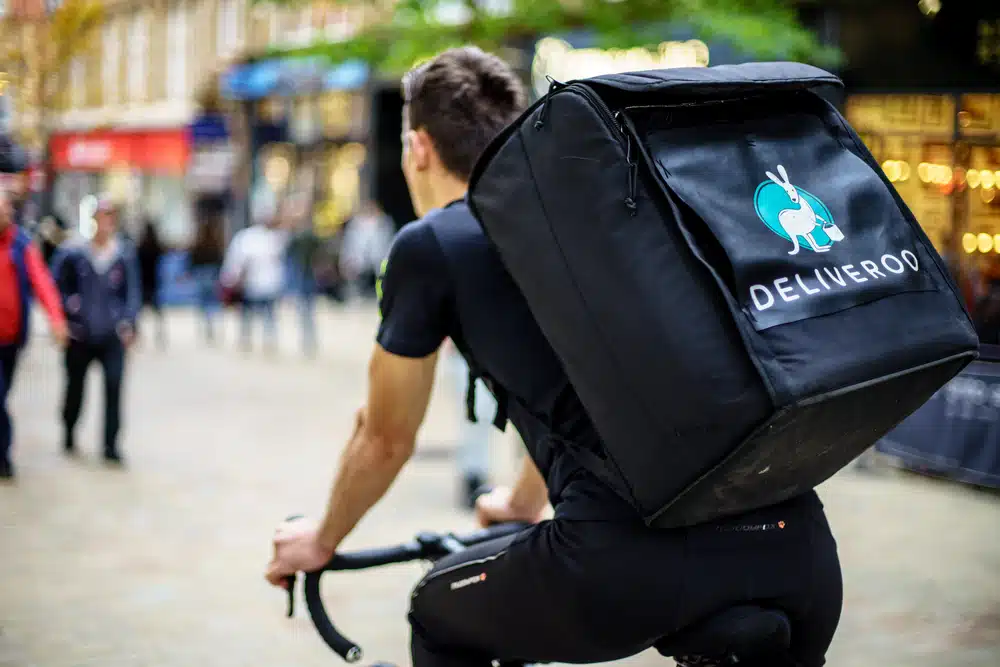
Business insurance can provide coverage for these risks and protect the business from financial losses. Some common types of coverage for food delivery businesses include general liability, commercial auto, and workers’ compensation insurance. It is important to consult with an insurance agent to determine the appropriate coverage for a specific business.
Does business insurance cover food delivery?
Business insurance can provide coverage for food delivery businesses, but the type of coverage will depend on the specific risks and needs of the business. For example, general liability insurance can provide protection for third-party claims of bodily injury or property damage that may occur during the delivery process. This can include incidents such as a delivery driver causing a car accident or delivering contaminated food to a customer.
Commercial vehicle insurance is also important for food delivery businesses as it can provide coverage for vehicles used in the delivery process. This can include coverage for damages to the delivery vehicle, as well as liability coverage in the event that a delivery driver causes an accident while on the job. Additionally, workers’ compensation insurance can provide coverage for injuries or illnesses that may occur while employees are delivering food. It is important to consult with an insurance agent to determine the appropriate coverage for a specific food delivery business.
What is food delivery insurance?
Food delivery insurance is a type of insurance that provides coverage for businesses that deliver food products. This coverage is designed to protect food delivery businesses from financial losses that may occur as a result of risks specific to the food delivery industry, such as spoilage, contamination, and accidents. Food delivery insurance can include coverage for general liability, commercial vehicle, and workers’ compensation insurance.
General liability insurance can provide protection for third-party claims of bodily injury or property damage, commercial insurance can provide coverage for vehicles used in the delivery process, and workers’ compensation insurance can provide coverage for injuries or illnesses that may occur while employees are delivering food. It is important to consult with an insurance agent to determine the appropriate coverage for a specific food delivery business
What cover do you need for food delivery work?
For food delivery work in the UK, it is important to have several types of insurance coverage in place to protect your business from potential financial losses. Some of the key types of coverage that are recommended for food delivery businesses in the UK include:
- Public Liability Insurance: This provides protection for third-party claims of bodily injury or property damage that may occur during the delivery process.
- Employers’ Liability Insurance: This is a legal requirement in the UK for businesses that have employees, it covers claims made by employees for injuries or illnesses sustained while working.
- Goods in Transit Insurance: This covers any loss or damage to the food while it is being transported.
- Vehicle insurance: It is important to have adequate insurance coverage for any vehicles used in the delivery process, this includes cover for damages to the vehicle and liability coverage in the event of an accident.
It is important to note that the specific coverage requirements for food delivery businesses may vary depending on the nature of the business and the type of food being delivered. Therefore, it is highly recommended to consult with an insurance agent or broker to determine the appropriate coverage for your specific business needs
What other types of insurance are recommended for food delivery drivers?
Although not mandatory for food delivery drivers, it is highly recommended to consider obtaining the following insurance policies for a more comprehensive level of protection. Before purchasing any coverage, it is important to check if your employer already provides these policies.
Goods in transit insurance
Goods in transit insurance is a type of insurance coverage that protects businesses that transport or deliver goods from potential financial losses. This type of insurance can provide protection for the goods being transported or delivered in the event of damage or loss during transit. This can include things like theft, fire, collision, or other types of accidental damage.
This type of coverage can also provide protection for legal liabilities that may arise from the loss or damage of goods in transit. For food delivery businesses, Goods in Transit insurance is important as it covers any loss or damage to the food while it is being transported. It is important to consult with an insurance agent to determine the appropriate coverage for a specific business and the type of goods being transported
Public liability insurance
Public liability insurance is a type of insurance that provides protection for businesses against third-party claims of bodily injury or property damage. This coverage can be especially important for food delivery businesses, as it can provide protection in the event that a delivery driver causes an accident or delivers contaminated food to a customer. Public liability insurance can also provide protection for any incidents that may occur on the business’s premises, such as a customer slipping and falling on a wet floor.
The coverage will provide protection and pay for legal defense and compensation costs, up to the limits of the policy. It is important to consult with an insurance agent to determine the appropriate coverage limits for a specific business and the type of risks it faces.
Personal accident insurance
Personal accident insurance is a type of insurance that provides financial protection for individuals in the event of an accident resulting in injury or death. This type of coverage can be especially important for food delivery drivers, as it can provide protection in the event of an accident while on the job. Personal accident insurance can provide financial compensation for lost income, medical expenses and other costs related to the accident. This coverage can also provide a lump sum payment in the event of death or permanent disability.
The coverage can be purchased by the individual or by the employer. Personal accident insurance can provide peace of mind for food delivery drivers, as it can help them to cover expenses related to accidents that may occur while on the job, even if the accident is their own fault. It is important to consult with an insurance agent to determine the appropriate coverage limits for a specific individual
How much is food delivery insurance?
When compared to personal car insurance, the cost of food delivery insurance tends to be higher due to the added risks associated with the job such as multiple stops, busy periods, and time constraints. However, the actual cost of food delivery insurance can vary depending on several factors including:
- location,
- working hours,
- coverage level,
- excess you are liable for,
- personal driving history,
- and the type of vehicle.
The duration of food delivery insurance can be tailored to your specific needs. Some options include:
- 30-day food delivery insurance: ideal for short-term delivery drivers.
- Annual food delivery insurance: suitable for those making deliveries long-term.
- Pay-as-you-go food delivery insurance: offered by some providers on an hourly basis.
- It is important to conduct thorough research and compare different providers to find the best food delivery insurance that suits your personal needs and circumstances.
Conclusion
In conclusion, it is highly recommended for businesses that deliver food in the UK to have business insurance. This is due to the potential risks involved in handling and transporting perishable goods, as well as the likelihood of accidents or injuries occurring during delivery. Business insurance can provide coverage for these risks and protect the business from financial losses.
Some common types of coverage for food delivery businesses in the UK include general liability, commercial auto, and workers’ compensation insurance, which can provide protection for third-party claims of bodily injury or property damage, vehicles used in the delivery process, and injuries or illnesses that may occur while employees are delivering food.
Additionally, it is important to note that some types of coverage are legal requirements for businesses in the UK, such as Employers’ Liability Insurance. It is important to consult with an insurance agent to determine the appropriate coverage for a specific food delivery business and comply with legal requirements.
Lee Jones is a seasoned Business Finance Specialist with over two decades of invaluable experience in the financial sector. With a keen eye for market trends and a passion for helping businesses thrive, Lee has become a trusted advisor to countless organizations seeking to navigate the complexities of finance.


